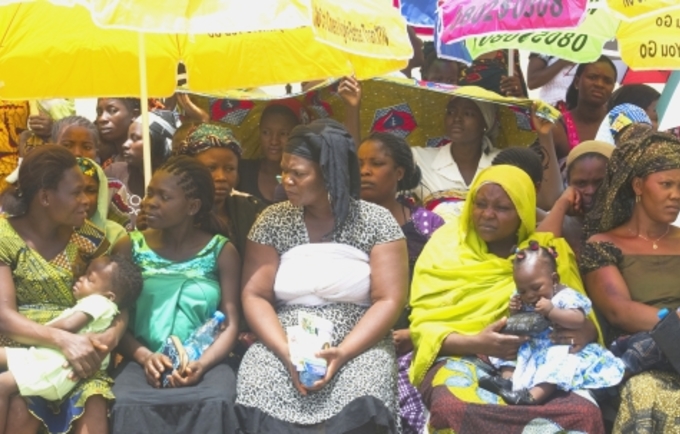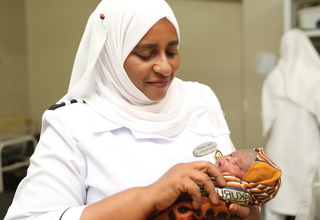Every day 800 women lose their lives giving birth — 287,000 each year — and the vast majority of these deaths occurs in developing countries. Maternal and child mortality are inextricably related because babies whose mothers die before they’re just 6 weeks old are more likely to die themselves before their second birthdays, than those whose mothers survive.
These deaths are unacceptable, particularly because they are preventable. In 2011, about 6.9 million children died before reaching their 5th birthday -– a significant decline from 12million in 1990. However, about 40% of these children die in the first month of life and much greater attention must now be paid to neonatal mortality.
Today, the heads of the Health 4+ (UNAIDS, UNFPA, UNICEF, UN Women, WHO, and the World Bank, known as H4+), will meet in New York to bolster joint efforts towards meeting the targets of the Millennium Development Goals (MDGs), particularly in countries that are lagging the furthest behind.
What needs to be done now is clear. Scaling up access to quality maternal and child health care and to life-saving medicines and supplies would prevent most deaths during pregnancy and childbirth.
Every woman giving birth should be able to turn to a skilled health worker, and be given the life-saving – and cost-effective – medicines so critical to her and her baby.
In 2010, UN Secretary-General Ban Ki-moon launched the Global Strategy for Women’s and Children’s Health, an unprecedented effort to prevent the unnecessary deaths of 16 million women and improve the lives of millions more by 2015. It is re-energizing the international community’s efforts, and bringing together a variety of partners to deliver life-saving interventions for women and children, often the most vulnerable of all, around the world.
To advance the Global Strategy, 57 low- and middle-income countries, 13 high-income countries, and over 100 foundations, NGOs and private sector organizations have made ambitious pledges so that women and children globally have the future they deserve.
Today, during the 67th session of the UN General Assembly, decision-makers and heads of agencies from around the world will meet in New York to advocate at the highest levels for the health of women and children globally.
Progress has indeed been made. Through our agencies, for example, governments receive financial and technical support to translate their commitments into sustainable action that in turn enables them to meet their development goals and, in addition, achieve the MDGs.
We are working with more than a dozen national governments to strengthen maternal and newborn health services in a number of critical ways, including, for example, through the introduction of mobile technology to improve service delivery in Zambia, or by training more specialists to deliver emergency obstetric and neonatal care in Zimbabwe.
This work is saving the lives of thousands of women and children and inspiring our partners. Donor countries have recently pledged additional financing for health programmes in several developing countries during the next three years.
The private sector is also contributing to these efforts. Since 2011, private sector partners have been instrumental in helping H4+ support governments to find more efficient ways to integrate new software and technology into improving service delivery to mothers and newborns in countries such as Ethiopia and Tanzania.
The H4+ is determined to keep up this momentum through 2015 by strengthening and building new partnerships.
We urge decision-makers all over the world to join us and do what it takes to translate talk into action for millions of women and children.


